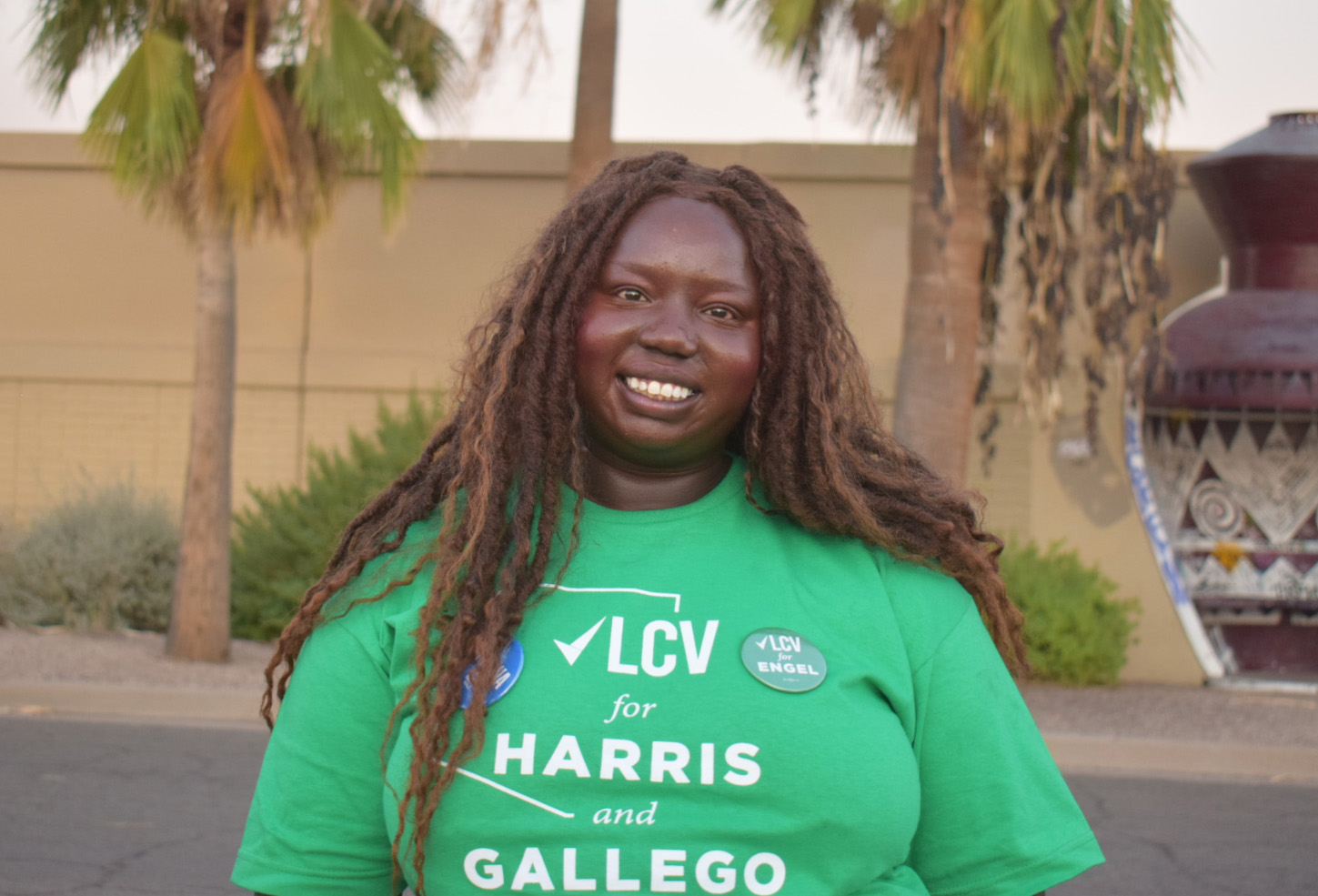
LCV Organizer Stories: Working to Ensure Everyone’s Voices are Heard
Oct 28, 2024
Choose to fight back: make a gift to LCV to show your commitment to our climate and democracy Give Now
“Peinate ese pajón!” is how my mother, my grandmother, my tias and all the women in my family tell me, in a not-so-nice way, to go to a hair salon, as I proudly parade my unruly curly afro that I refuse to relax.
This has been happening since my childhood. Dominican women are known for the way they can take kinky, curly hair and make it slick. Generations upon generations of Dominican women have grown up with the colonial mentality that white is beautiful. We are told from a young age to hide anything that resembles Blackness. This not only enables our own self-hatred, but ignores a huge part of our history—our Black history.
 As I grew older, I began to recognize the prevalence of African roots in my Dominican heritage. How our culture, our food, our music, our dance and even our dialect have been influenced by Africa. I could see, from my hair to my skin to facial features, that I am not only Latina, but also Black. I felt proud to be Afro-Latina. Yet I also felt invisible. In school I was not Latina enough to fit in with other Latinas; the amount of melanin in my skin made me too different. But I was still not black enough to be Black. There wasn’t a space for me as both Black and Latina.
As I grew older, I began to recognize the prevalence of African roots in my Dominican heritage. How our culture, our food, our music, our dance and even our dialect have been influenced by Africa. I could see, from my hair to my skin to facial features, that I am not only Latina, but also Black. I felt proud to be Afro-Latina. Yet I also felt invisible. In school I was not Latina enough to fit in with other Latinas; the amount of melanin in my skin made me too different. But I was still not black enough to be Black. There wasn’t a space for me as both Black and Latina.
It’s not so different in the environmental movement. When I joined Chispa, a program of LCV focused on grassroots organizing of and by communities of color, I didn’t realize I was entering a predominantly white space—36 percent of LCV employees identify as people of color, and across the board, there are few people of color in environmental organizations. And there are even fewer Afro-Latinos. Even within Chispa, as an organizer, I’ve encountered issues our community doesn’t really want to talk about, like colorism. Latino volunteers struggle to understand that I can be Latina and look Black, that I can speak Spanish but still have a curly afro.
Things are slowly getting better. We’re having more conversations, as an organization and as a movement, about mixed-race people of color, about not just identifying people as either Black OR Latino. Conservation voters are beginning to learn what it means to actually address racial justice and equity for all people of color.
This is so important to achieve our goals. If we want to improve the lives and health of our communities, then we must create spaces for our brothers and sisters who are underrepresented, marginalized and often ignored even among communities of color. Even if it’s uncomfortable, we need to have genuine conversations within Latino communities about colorism and about how we include and bring with us people of all shades. We need to put mixed-race people of color in positions of power, and help them lead the way.
 It’s still a strange experience for me not to see other people who look like me in our organization. Sometimes I find it hard and overwhelming. What I love about the work I do is seeing abuelitas and moms come into our office, talk about issues they care about and realize that they can make a difference without having to have a ton of money. Even my own mom has joined our promotores team. It’s pretty exciting to see generations of women working together to build a better future for their kids and grandkids. Helping them create their own change lets me know I’m doing something right.
It’s still a strange experience for me not to see other people who look like me in our organization. Sometimes I find it hard and overwhelming. What I love about the work I do is seeing abuelitas and moms come into our office, talk about issues they care about and realize that they can make a difference without having to have a ton of money. Even my own mom has joined our promotores team. It’s pretty exciting to see generations of women working together to build a better future for their kids and grandkids. Helping them create their own change lets me know I’m doing something right.
I have learned to own both my identities, with my family and at work. This is who I am and I’m great with it, and I won’t hide it. Now, unapologetically, I no longer feel obligated to explain my heritage, my black girl magic, or my Sazón Dominicano.
Owning my Afro-Latinidad has made me feel less alone, too. Yes, I work to give a voice to the Latino communities I organize in Nevada, but also to help other Afro-Latinos demand a place within the fight for a healthier environment. This space should belong to all of us. We have work to do.